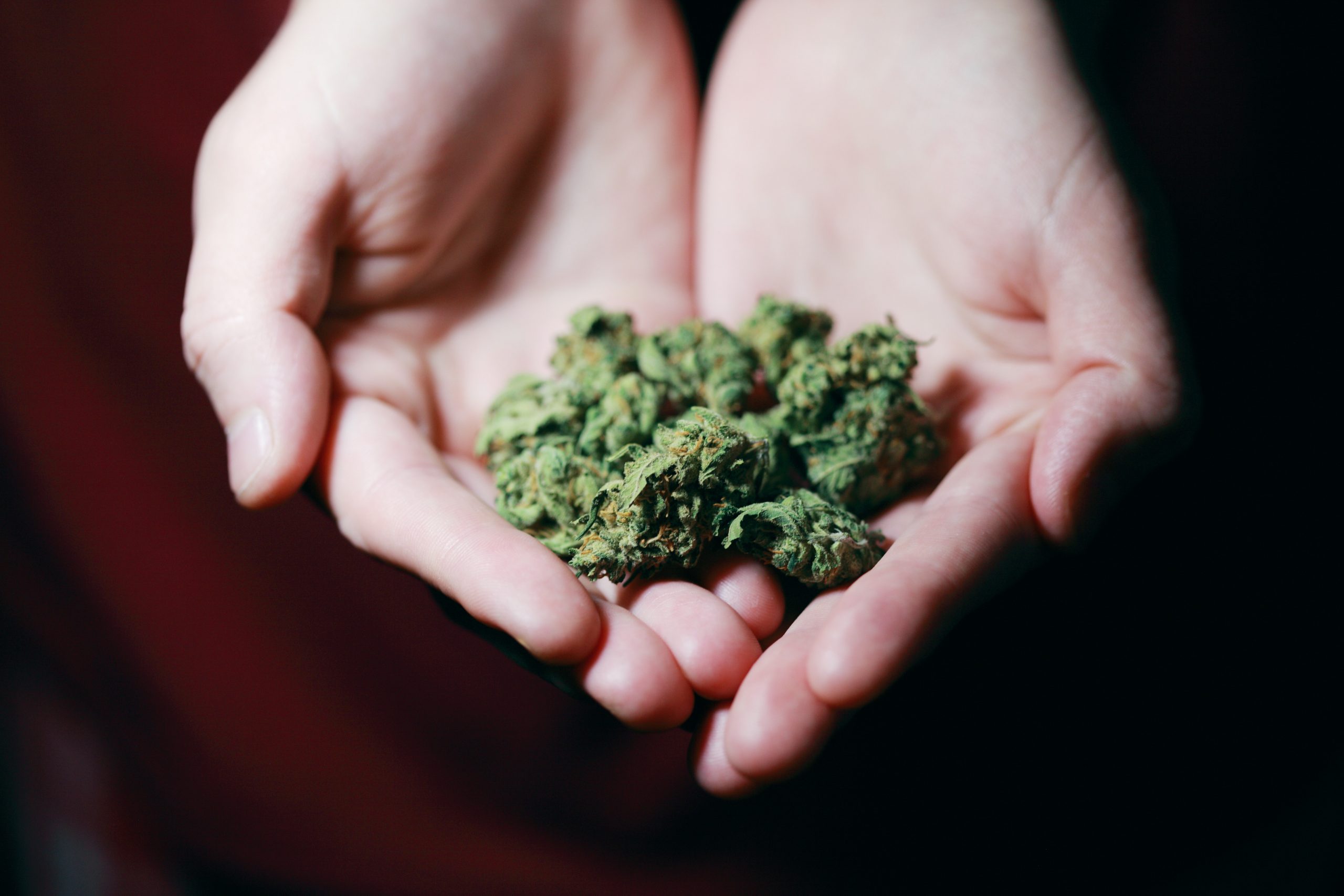Use your DNA to discover your genetic predispositions and help you mitigate adverse reactions with cannabis.
Does this story sound familiar?
You’re considering a cannabis product to help you manage severe anxiety. You’ve dealt with anxiety for years and you’re tired of letting your anxiety dictate your life. You’re on a mission to find a therapy product that lets you do the thing you love without having to worry about panic attacks and that awful tightness in your chest.
Your brother swears by a particular cannabis strain and says it’ll help calm your nerves; you decide to give it a try. You buy pre-rolled cannabis from your local dispensary and triple check to make sure it’s the strain your brother recommended. You smoke the cannabis on your back porch and settle in for the night, hopeful that you’ll feel less nervous before bed.
But after you smoke, you feel sad. You put on your pyjamas, tuck your kids in, and go to bed feeling defeated. In the morning, you feel as anxious as ever and feel like you’re on the verge of another panic attack.
When you tell your brother what happened, he thinks you smoked too much or too little and he tells you to try again. That evening, you invite him over so you can follow his dosing advice exactly. After he leaves, you go to bed feeling sad and lethargic again.
In the morning, you rule out cannabis therapy and assume all cannabis products will make you feel depressed. Your anxiety is still unmanageable and you’re left more discouraged than ever.
In the process of trial and error, though, you’ve overlooked an important component that determines your therapeutic experience with cannabis. Your DNA.
As much as 40% of the general population is genetically predisposed to depressive feelings and may be at risk for an adverse event with THC.[1*] In other words, under certain conditions, four in ten people will experience sadness, lethargy, or disinterest due to their genetic makeup.
If you’ve experienced these symptoms as an adverse event with THC, it’s likely because your cannabis therapy is misaligned with your unique genetic profile.
Experiencing adverse events with cannabis is manageable. Think of it like this: the cannabis formulations you’re currently using aren’t optimally compatible with your DNA. To mitigate adverse reactions, you’ll want to use cannabis formulations that don’t trigger your unique genetic predisposition to experience depressive feelings.
Below, you’ll learn more about depressive feelings, how cannabis interacts with your genetics, and how you can manage THC adverse events with the right science-backed knowledge and wellness plan.

What are depressive feelings?
Depressive feelings are a set of feelings that are often associated with depression. While depressive feelings and clinical depression are different, their symptoms can overlap.
It’s important to note that there are a host of factors that may contribute to depressive feelings, including environmental, genetic, and epigenetic influences.
Depressive feelings can include feelings of:[2]
- Sadness,
- Extreme lethargy,
- Reduced appetite,
- Disinterest,
- Excessive tiredness, or
- A general lack of energy.
Depressive feelings affect how you feel, think, and behave. They can occur in a number of different mood disorders including major depressive disorder, bipolar disorder, and seasonal affective disorder (SAD).
Feeling down from time to time is a normal part of life. But when depressive feelings begin to make life unmanageable, it’s time to talk to a professional. If your depressive feelings are persistent, check in with your healthcare provider.
Key takeaway:
- Depressive feelings are often associated with clinical depression, bipolar disorder, and seasonal affective disorder (SAD).
- While depressive feelings and clinical mood disorders are different, their symptoms can overlap.
- Depressive feelings can include sadness, extreme lethargy, distinterst, or feeling excessively tired.
- When depressive feelings begin to make life unmanageable, it’s time to talk to a professional.
Depressive feelings as an adverse side effect of THC.
Like all chemical compounds, including prescription medications and other substances, cannabis can lead to side effects.
Some cannabis side effects are therapeutic. They allow you to relax and provide relief from disorders, diseases, or discomfort.
Other cannabis side effects, however, cause distress to the body and result in adverse events. Approximately 31% of the general population has reported experiencing an adverse event with THC, which means adverse reactions are fairly common.[3†]
Adverse events with THC can leave you confused, afraid, or wondering if cannabis therapy is right for you—especially if you experience feelings of sadness or disinterest with cannabis.

If you’re considering using cannabis for any reason, you should know your risks of experiencing adverse events with THC. With the right knowledge, precautions, and cannabinoid and terpene formulations, you can achieve the optimal experience for your therapeutic needs and mitigate depressive feelings as an adverse event with THC.
Knowing your risks starts with understanding your genetic predisposition to adverse events.
You should always consult your healthcare provider when making decisions regarding your wellness routine and cannabis therapy.
Key takeaway:
- Like prescription medications and other chemical compounds, cannabis can lead to side effects.
- If you’re genetically predisposed to depressive feelings, you may be at risk of experiencing sadness, disinterest, lethargy, or hopelessness as a side effect of THC.
- The first step to mitigating these events with cannabis is understanding your genetic predispositions so you can determine if you’re at risk for adverse events.
Depressive feelings, THC, and your endocannabinoid system.
Your endocannabinoid system (ECS) is a system of messengers found throughout your body. Like most of your biological systems, your ECS is as unique as your thumbprint. It’s functioning is determined by genetic, epigenetic, developmental, and environmental factors.
Along with a host of critical functions, your ECS is responsible for regulating important systems like your mood, appetite, and immune function.
When you use a particular cannabis varietal, strain, or product, the cannabinoid and terpene profiles interact with your endocannabinoid system. The external cannabinoids (exogenous cannabinoids) are added to your system’s internal cannabinoids (endocannabinoids), which can disrupt or augment your ECS messaging.
Psychoactive effects from cannabis, like experiencing depressive feelings, are caused by cannabinoids binding to the cannabinoid receptors within your body. Depending on the cannabinoid and terpene ratios of your cannabis product and your own unique genetic coding, the resulting effects are either therapeutic or lead to an adverse reaction.[4]
If you’re predisposed to depressive feelings based on your genotype, you may be at risk for experiencing sadness or lethargy as an adverse event with THC.
Key takeaway:
- When cannabinoids enter your body, they disrupt the normal functioning of your endocannabinoid system.
- This can trigger feelings of sadness, lethargy, or disinterest in populations who are genetically predisposed to depressive feelings.
How to mitigate depressive feelings when you’re using cannabis.
If you’ve experienced depressive side effects adverse events with THC, or if the risk of experiencing adverse events with THC is preventing you from trying cannabis therapy, you should know that adverse side effects are completely manageable.
The key to mitigating depressive feelings like sadness and lethargy when you’re using cannabis is to decode your genetics, discover your unique endocompatibility, and use cannabis strains, varietal, and products with cannabinoid and terpene profiles that are aligned with your genotype.
With the right science-backed knowledge and wellness plan, you can find reliable products to optimize your cannabis therapy outcomes.
To learn more, take this 10 question quiz and discover if you may be genetically predisposed to adverse events with THC.
_______________
References
1. *Endocanna Health used specific allele frequencies and genotype heterozygosity to determine general population percentages for genetic predispositions.
3. †Endocanna Health determined the potential predisposition of THC adverse events in the general population.
Endocanna Health is a biotechnology company committed to helping consumers find the right cannabinoid products to enhance their health and wellness. Using our breakthrough DNA test, Endo·dna, we empower you to take control of your health with access to over 55 different health reports that include suggestions for the best CBD and cannabis products that match your unique genetic code. Visit us here to find out more!





